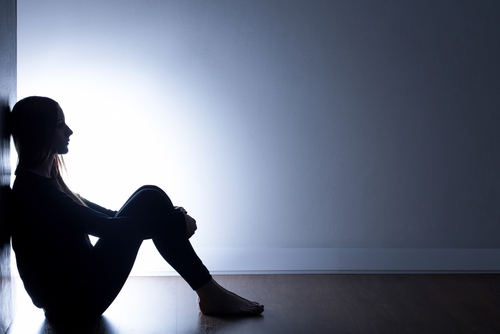Joining a depression rehab program can be a pivotal step toward regaining control over an individual’s mental health and overall well-being. However, this decision is not taken lightly, as it involves a commitment of time, effort, and financial resources. Before embarking on this journey towards healing and recovery, it is crucial to carefully consider various factors that can significantly impact the effectiveness and suitability of a depression rehab program.
From understanding individual needs and treatment goals to evaluating the program’s approach and assessing practical logistics, thoughtful consideration is essential to ensure that the chosen depression rehab program aligns with your unique circumstances and paves the way for a successful path to healing.
The Impact of Depression
Depression, also known as major depressive disorder, is more common than many realize. About 20% of Americans experience depression at some point, so you’re not alone. Nearly 1 in 5 adults in the U.S. experience depression. The numbers for young adults aged 18-25 are even higher at 1 in 4. Women are twice as likely to experience depression as men. About 1 in every 8 women will experience depression in their lifetime.
Depression in teens is also very common, affecting up to 20% of teens at some point. Of those, only about 1/3 receive treatment. The costs of depression treatment and lost work productivity in the U.S. amount to over $200 billion each year. The good news is treatment works, and most people with depression can feel better with the right program and support.
The more individuals understand depression and treatment options, the better equipped they will be to choose the right program. But the most crucial first step is simply seeking mental health treatment.

What are Depression Rehabs?
Depression rehabs, also known as depression rehabilitation programs or depression treatment centers, are specialized facilities or programs designed to provide comprehensive and intensive care for individuals struggling with depression and related mental health conditions. These programs offer a structured and supportive environment where individuals can receive treatment, therapy, and support tailored to their specific needs.
The Program
Depression rehab typically includes therapy, counseling, medication management, and lifestyle changes. Individuals will work with doctors, therapists, and counselors to develop a treatment plan tailored to their needs. This usually involves:
- Talk therapy, like cognitive behavioral therapy (CBT) or interpersonal therapy (IPT)
- Adjusting or changing medications under medical guidance
- Learning coping mechanisms and life skills
- Sticking to a routine with plenty of rest, nutrition, and exercise
The program can last anywhere from a few weeks to a few months. Some people attend on an outpatient basis, while others do an inpatient program where you live at the facility. Either way, be prepared to commit the time needed to establish new habits and skills.
Cost and Insurance
Rehab programs can be expensive, often costing $10,000-$60,000 per month. Check with your insurance provider about coverage and out-of-pocket costs. Some facilities offer financing and payment plans.
Effectiveness
While rehab doesn’t provide an instant cure, many studies show it can be very effective at relieving symptoms of depression, especially when followed up with ongoing therapy or support groups. Success rates vary but tend to be 50-70% or higher. The key is finding the right program and fully committing to the process.

Is Inpatient or Outpatient Rehab Right for You?
Deciding between inpatient or outpatient depression rehab is a crucial decision that can significantly impact your journey to recovery. Each option offers distinct advantages and considerations, and the choice should be based on your individual needs, circumstances, and treatment goals.
Inpatient Rehab
Inpatient depression rehabilitation programs offer intensive support with round-the-clock care, creating a controlled and safe environment ideal for individuals with severe depression or those at risk of self-harm. These programs provide comprehensive inpatient treatment through various therapies, medication management, and holistic approaches, addressing complex mental health issues. The highly structured daily routine promotes comfort and establishes healthy habits, while the sense of community and peer support among participants enhances the overall recovery process. However, it requires taking time off work or school and can be more expensive.
Outpatient Rehab
Outpatient depression rehabilitation programs offer flexibility in scheduling, allowing individuals to manage their day-to-day responsibilities and making it suitable for those unable to take extended breaks. They are typically more cost-effective than inpatient options, as they don’t involve round-the-clock care and accommodation costs. Outpatient rehab promotes independence by immediately applying coping skills to real-life situations, fostering self-sufficiency. This approach minimizes disruption to daily routines, helping reduce the stigma of seeking mental health treatment. Outpatient may suit you if you have a strong support system at home and less severe symptoms. However, you have more opportunities to relapse without 24-hour care. Outpatient treatment facilitates a seamless transition into aftercare and ongoing therapy, ensuring the continuation of support beyond the program.
Potential Out-of-Pocket Costs for Depression Rehab
The cost of depression rehab can vary widely depending on the program and level of care. As you consider programs, understand all the potential out-of-pocket costs to find an affordable option that meets your needs.
Insurance Coverage
Check with your insurance provider about coverage for different rehab options. Inpatient or residential care typically offers more comprehensive treatment but may have limited coverage. Partial hospitalization or intensive outpatient programs may have better coverage but less intensive care.
Additional Fees
Beyond facility fees, also consider other potential costs like:
- Medications: If not covered by insurance, it can cost $50-$500/month.
- Therapy: Individual or group therapy sessions may have additional fees.
- Miscellaneous: Additional for gym, recreational activities, meals, etc. Ask about all potential fees.
Travel and Accommodation
For residential or inpatient care, factor in costs for travel to and from the facility and living expenses for any family members staying nearby during treatment. These additional costs can add up, so look for programs within reasonable travel distance.
Aftercare Support
Effective treatment often requires ongoing aftercare like therapy, medications, support groups, etc. Ensure you understand the related costs to budget for the long-term management of your depression properly.
The most important thing is getting the treatment you need. Don’t let potential costs deter you from seeking help for depression. Work with treatment facilities and insurance providers to find an affordable solution so you can focus on your recovery.

Seek Help from Riviera Recovery
When depression feels overwhelming, professional help can make a world of difference. Riviera Recovery offers comprehensive mental health housing to help individuals recover from mental health conditions or substance use disorders with a holistic, personalized approach. Their caring staff provides customized programs to meet your unique needs.
Call our 24-hour helpline at 855-207-9708 to speak with an advisor for guidance on the program that’s right for you. We support major depression, bipolar disorder, PTSD, and co-occurring disorders. At our residential treatment centers in Orange County, California, our serene, homelike facilities provide the supportive environment you need to heal.


